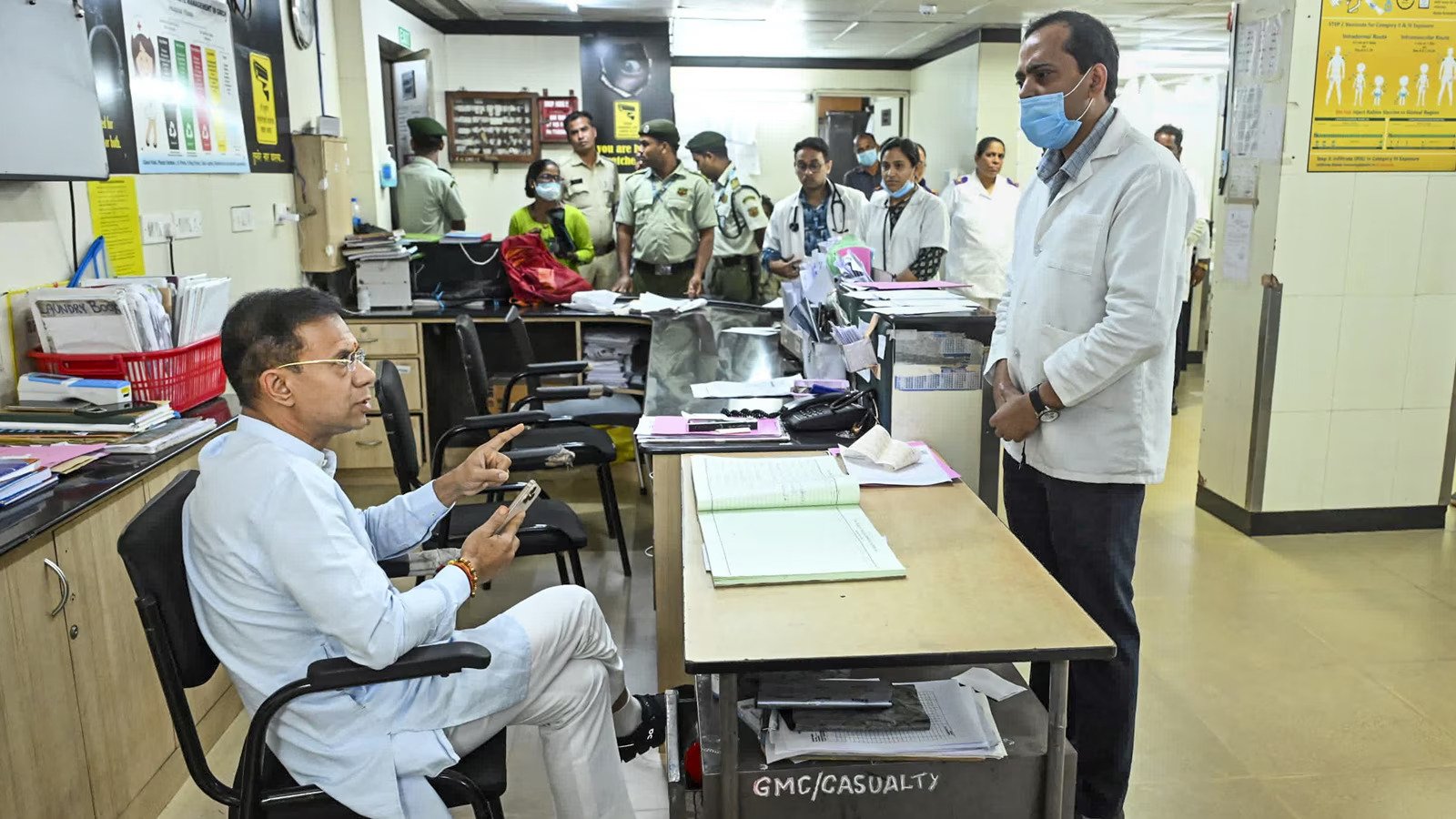On June 7, Goa’s Health Minister Vishwajit Rane visited the Goa Medical College and Hospital (GMCH) and publicly berated senior doctor Dr. Rudresh Kuttikar in the emergency department. The incident, caught on video and widely circulated, showed the minister announcing the suspension of Dr. Kuttikar on the spot, after the doctor had followed standard protocol and advised a patient—reportedly the mother-in-law of a journalist—to receive a non-emergency Vitamin B12 injection at a primary health center instead of in the emergency ward.
The swift and public humiliation drew sharp criticism from doctors across the state. Within 24 hours, Chief Minister Pramod Sawant revoked the suspension following objections from medical professionals, including a formal protest led by the Goa Association of Resident Doctors (GARD) and the Faculty Doctors Association.
‘A Studio Apology Is Not Enough’
Despite the reversal of the suspension, tensions remained high. On June 10, Dr. Kuttikar rejected what he called a “studio apology” issued by Rane through a televised statement. “My humiliation was in front of patients. The apology must be made there too,” he said, demanding a public retraction at the same hospital.
FCRF x CERT-In Roll Out National Cyber Crisis Management Course to Prepare India’s Digital Defenders
Rane, who later admitted that his “tone and tenor” could have been more “measured,” said he regretted the incident but initially refrained from issuing an apology directly at GMCH. Doctors insisted this was insufficient. “We serve tirelessly, but we won’t stand by as the dignity of our profession is trampled,” said a representative of GARD.
Calls to End VIP Culture in Emergency Healthcare
The incident has also reignited long-standing frustrations over VIP interference in hospital procedures. GARD’s memorandum to the government called for a clear policy against political or social status influencing clinical decisions—especially in emergency departments.
“Emergency wards are for critical patients—not for political favors,” Dr. Kuttikar explained. “A Vitamin B12 injection is not an emergency.” His stance, backed by protocol, emphasized the need to preserve the sanctity and function of emergency care.
With doctors threatening to escalate protests if a public apology is not issued at GMCH, the controversy has opened a broader debate on professional dignity, ministerial overreach, and systemic reforms in India’s government hospitals.
Meanwhile, calls for the sacking of Health Minister Vishwajit Rane have grown louder from various quarters—ranging from healthcare professionals and opposition leaders to civil society groups—who argue that mere regret is not enough to repair the institutional damage caused by his actions.



